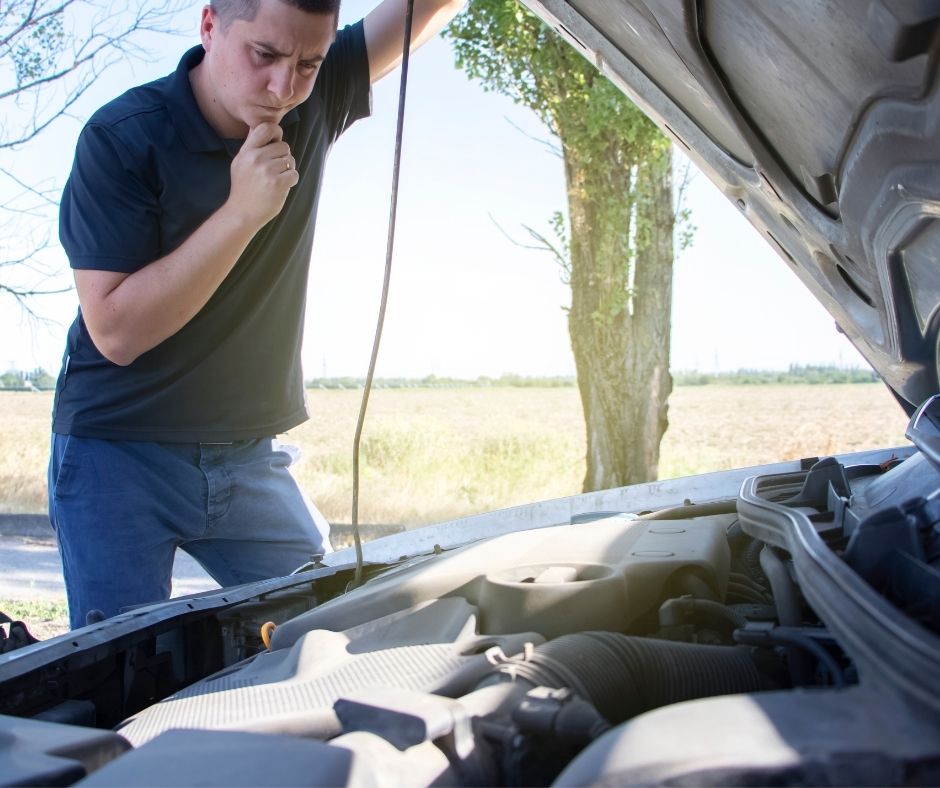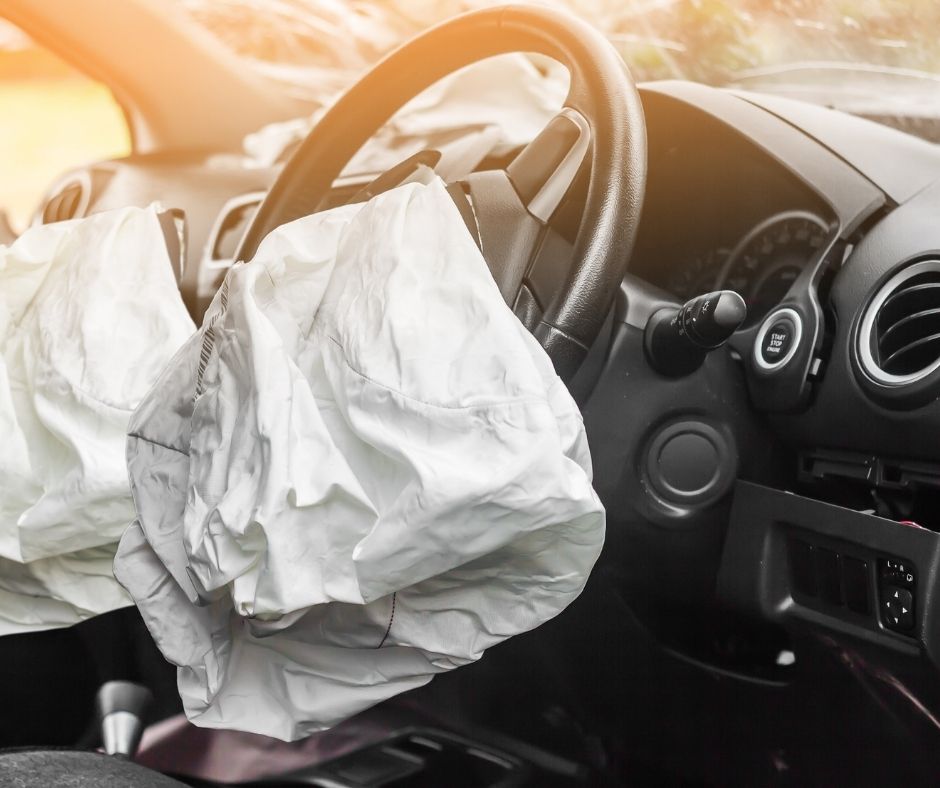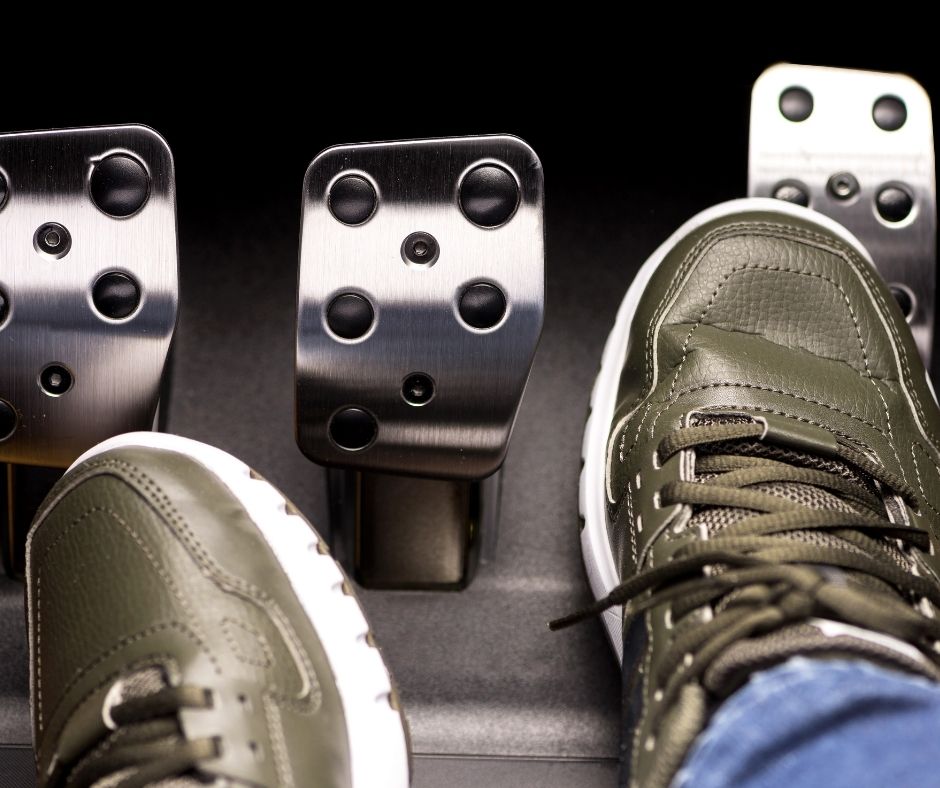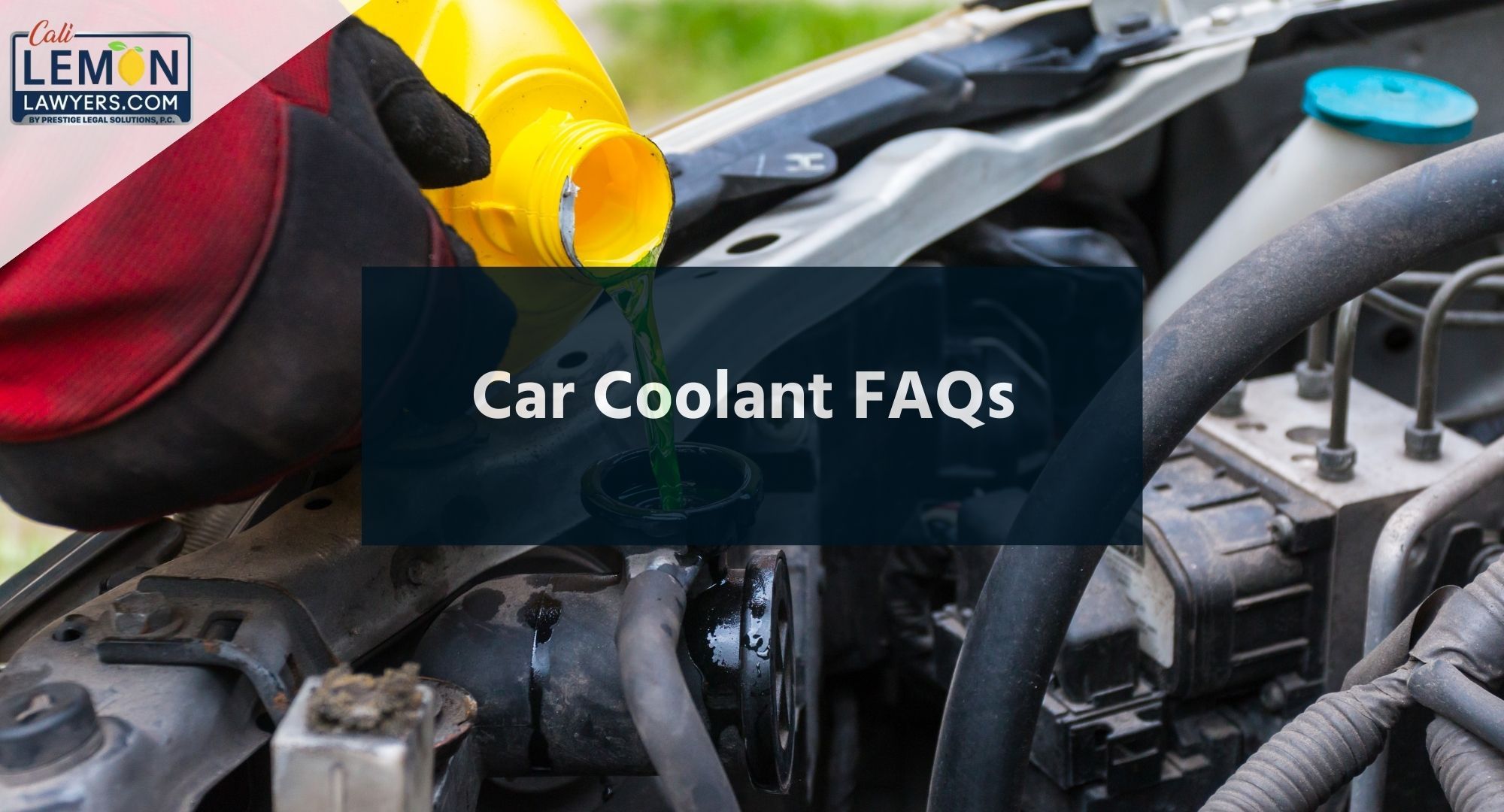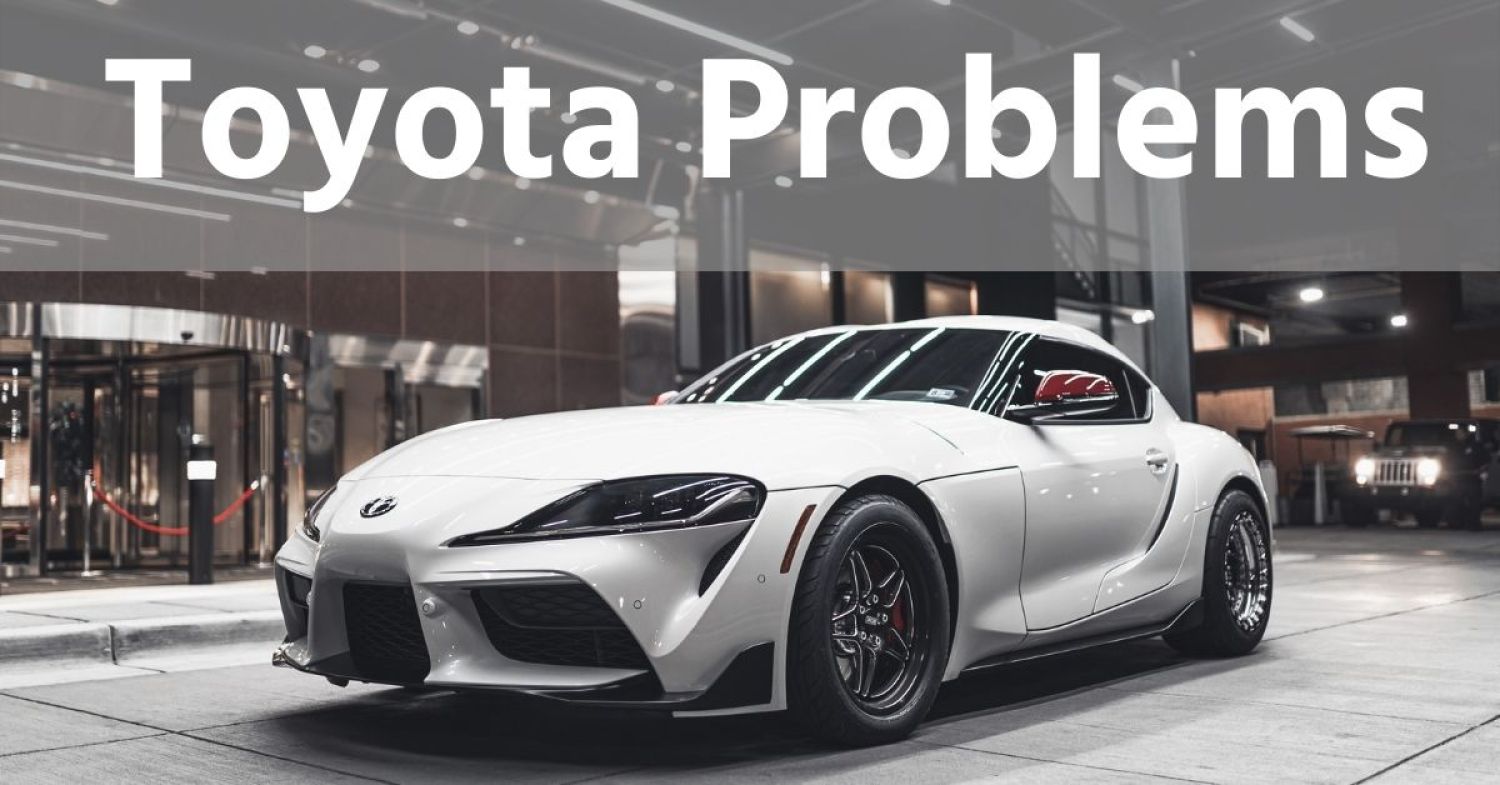
Toyota Problems You Should Know About
Japanese automakers have been known for building reliable cars, but that hasn’t prevented dangerous problems in Toyota vehicles. Toyota problems continue despite it being the 2nd largest automaker in the United States, only slightly behind Ford and just ahead of General Motors.
To car enthusiasts and mid-range car buyers and students, Toyota is a go-to automotive company. Its vehicles are a class in itself, long known, even revered, for their sterling quality. In a 2013 survey by Telegraph, the Toyota Motor Corporation reclaimed the top spot for car manufacturers and secured the 9th place for dependability. Yet this position has deteriorated due to the long list of problems among Toyota automobiles.
This article discusses some of the common issues in Toyotas and how they may impact the drivers. We look at the most common issues, from the increasing number of mechanical failures to the latest fuel pump fault. We also show you which models to avoid and help you understand your rights if you face a problem with this manufacturer. The truth is, you shouldn’t left paying for repairs or sacrificing resale price for a car with lackluster reliability.
Biggest Problems Owners Face with New Toyota Cars
There have been a lot of challenges faced by the Toyota Company over the years, but it’s important that we look at what’s happened just recently. From Toyota’s quality issues to highly-publicized recalls, the automaker has let a lot of customers down. Let’s take a closer look at the list of Toyota cars with well-known problems between 2018 and 2023.
If you leased or purchased a defective Toyota, it is very likely that you are entitled to compensation. Contact Cali Lemon Lawyers for a free case evaluation.
Engine Stalls
A small manufacturing error leading to a potential crack forming in the engine led to reportedly 40,000 recalls by Toyota. The engine problem occurs due to coolant or oil leaking from the crack and could potentially lead to the engine stalling, overheating, or possibly catching fire. This engine stalling occurs mainly with a 2.5 liter, four-cylinder engine for the models 2020 Camry, Camry Hybrid, Avalon Hybrid, 2019 and 2020 RAV4 and RAV4 Hybrid, and the 2020 Lexus ES300H for the builds between September and December 2019.
This problem, although not very frequent, has ultimately dangerous consequences for the driver. This issue could lead to engine noise, engine smoke, warning lights flickering on and off and/or engine overheating. This problem costs the driver not only frequent visits to the car dealership or mechanics but also the mechanic fee that is associated with each visit. Since Toyota was not able to pinpoint the exact cause of the engine fracturing, the drivers had to face huge amounts of repair costs to keep their cars running. The repair costs may be up to $450 for each engine repair visit.
In addition to the repair costs, sometimes the dealers may also suggest completely replacing the engines, which could cost between $3000 and $5000, depending on the model. This means an additional cost if the replacement is not covered by warranty.
Moreover, the frequent overheating of the engine, flickering of warning lights without there being a genuine cause for the warning, unpleasant engine noises and engine smoking may mean extremely uncomfortable experiences for the driver. This also means uncalled-for surprises on the road and security issues – for instance, an engine overheating leading to engine smoke forcing the driver to stop the car in the middle of nowhere on a highway or an emergency escape through heavy traffic due to a potential engine fire.
Failed Fuel Pump
The 2019 Toyota Sienna, along with nearly every Lexus from 2017 to 2020, has been prone to fuel pump failure. If this happens, the engine stalls and the car stops moving, posing a dangerous threat to occupants. The good news is that there was a recall issued for this problem, but not every dealership is quick to fix it.
Moreover, the problem affects nearly 2 million cars, leaving lots of people at risk during a daily commute. On top of that, the 2019 Toyota Sienna has a total of seven recalls, to date, including a loss of steering and incorrect tube nuts on brake lines.
Defective Airbags
When you get into an accident, you expect the airbags to deploy and protect you. Yet, that might not be the case if you drive a 2019 Toyota Camry. Toyota issued a recall for these Camry models because of an improperly calibrated Occupant Classification System (OCS). When this defect is present, the airbags do not deploy as they should.
Most cars have alerted owners of the problem with an SRS notification on the dash. Some people saw the notice within months of purchasing their new car. It took Toyota many more months before it came up with a solution, leaving many people in a dangerous and vulnerable position.
As of now, this situation should be resolved at no charge by a Toyota dealership. If it hasn’t been, there are bigger issues that must be dealt with.
Excessive Oil Consumption
Back in the early 2000s, Toyota vehicles were going through excessive amounts of oil. Between oil changes, owners would have to regularly top off the engine to keep the levels right. Additionally, the engine oil warning light would display on the multi-function center.
After a lot of complaints, Toyota updated its recommendations to get an oil change every 3,000 miles. This didn’t seem like an appropriate fix and it made many Toyota owners frustrated.
Fast forward many years later. Toyota seemed to have resolved the issue on newer models. However, more and more people have started complaining again about excessive oil consumption in the latest lineup.
What’s worse is if the problem isn’t noticed, the engine could burn up prematurely. Without the right amount of oil in the motor, it doesn’t get the lubrication it needs to run normally. Friction starts to occur and internal parts begin to wear down.
Other Problems With Toyota Vehicles
In addition to the problems discussed, the Toyota owners have also complained about various other issues with different models. These include:
- Stuck sliding doors
- Car seat overheating
- Front seat wear and tear
- Lack of power (due to a blocked exhaust gas recirculation valve)
- Headlights randomly turn off while driving (more frequent in Prius)
- Premature wear on the gear wheels
- Air-conditioning failures
- Gearbox problems
- Airbag malfunction due to steering column damage
- Loss of electric power steering assist
- Leaking engine coolant
- Overheating headlight electrical connector
- Floor mats that interfere with the accelerator
- Safety technology failures
At this point, it seems that any major system of the newer Toyota models could fail at any given time. Thankfully, there’s warranty coverage on newer models. All new cars, trucks and SUVs are supposed to be covered by a 3-year/36,000-mile basic and 5-year/60,000-mile powertrain warranty. One would think this would be enough coverage to take care of any defects.
But what happens when the warranty doesn’t cover the malfunctions in your Toyota vehicle? Should you just sit back and accept the hand you’ve been dealt or should you fight for what’s yours?
Top Toyota Models with Problems
As a Toyota owner, you want to own quality vehicles, yet not all of them can provide what we are looking for. From expensive car maintenance to reduced fuel economy, there are some models that aren’t popular to drive.
Aside from looking at the most common Toyota problems, here are a couple of newer models you may decide against after you do your research.
- 2018-2022 Toyota CH-R: small and cramped cabin
- 2022 Toyota Tacoma TRD Pro: may be fine off-road, but it has a few issues on the road
- 2017-2023 Toyota Sequoia: terrible fuel economy
- 2022 Toyota Mirai: not enough access to fueling stations
Toyota Lemon Law
If you are driving around with a lemon Toyota vehicle, you have rights. A car is considered a lemon if there’s a significant defect or malfunction that makes it unsafe to drive or diminishes the value substantially. While the automaker has a chance to repair it, the resolution must be prompt and be satisfactory. If not, you may be due compensation.
With so many Toyota problems over the past few years, it’s no wonder we’ve been dealing with so many Toyota cases. Our team of professionals has arranged for multiple settlements over the years, including for the following defects:
- 2022 Toyota Camry: Issues with a back window
- 2021 Toyota Highlander: Issues with battery and engine
- 2021 Toyota Tundra: Issues with doors and engine
- 2020 Toyota Corolla: Stalling engine and brake problems
- 2019 Toyota RAV 4: Steering wheel failure, the vehicle jerked and vibrated, plus had problems with rear mirrors
- 2019 Toyota Yaris: Recall on the motor, plus issues with AC, Check Engine Light, backlights and brakes
- 2019 Toyota Highlander Hybrid: Moonroof and insulation issues
- 2019 Toyota Camry: Electronics issues
None of these problems is acceptable. Neither is anything that you might be experiencing with your Toyota vehicle. If you are having Toyota problems that are unresolved, it’s time to reach out to our professional team.
Solve Your Toyota Problems
If you have Toyota problems that are unresolved and you believe you purchased a lemon, we will fight for you. We do everything in our power to get your money back and ensure you receive the compensation you deserve. Contact us now to get started.
Start Your FREE Case Review
or give us a call at:

Start Your FREE Case Review


